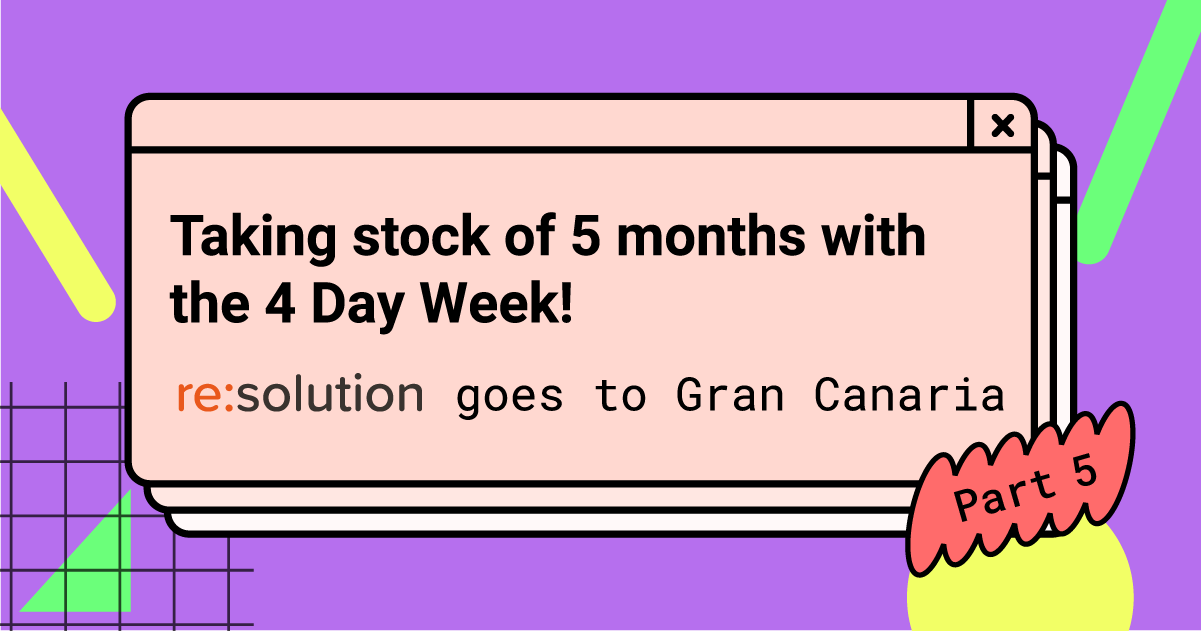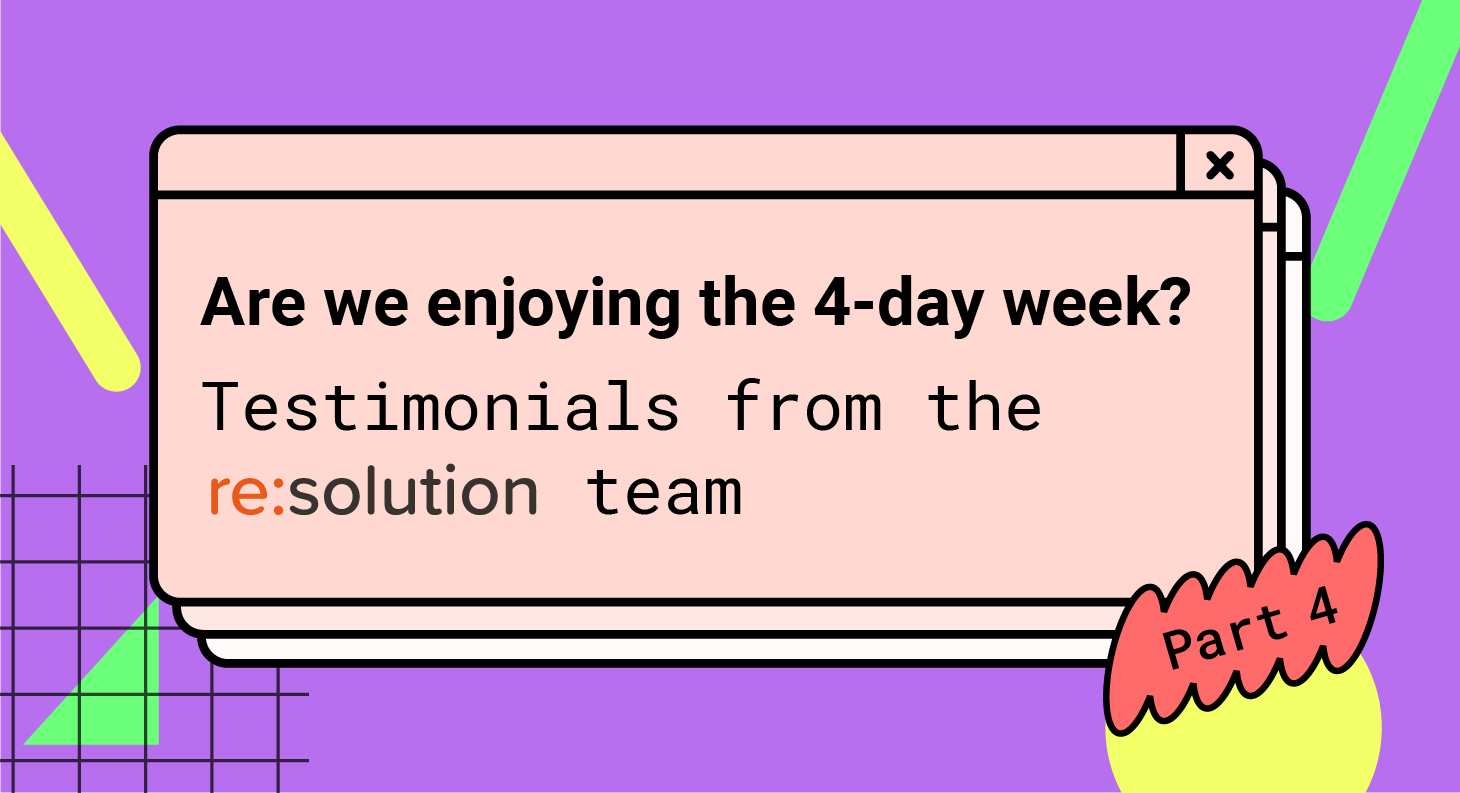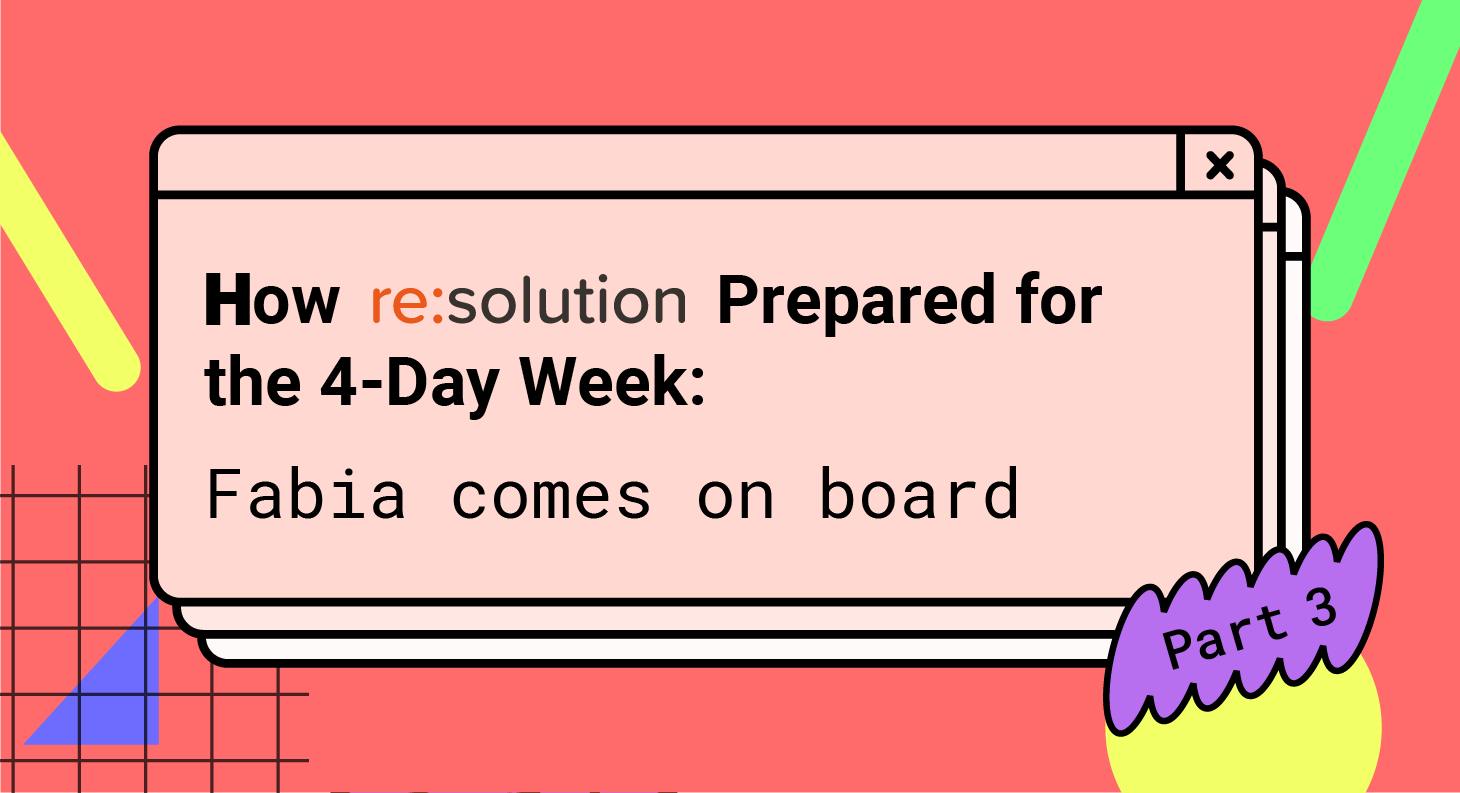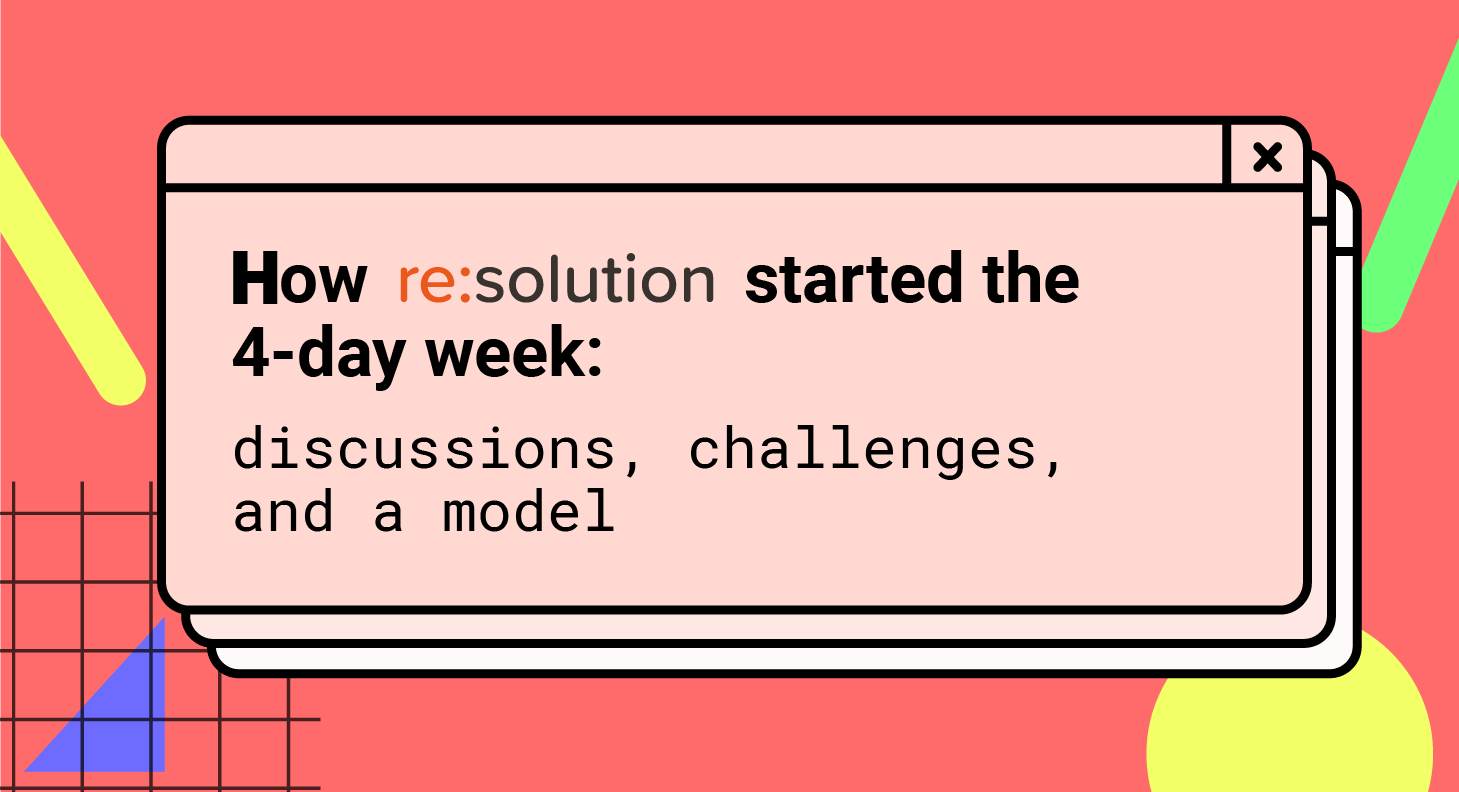If we don’t travel, we won’t see each other
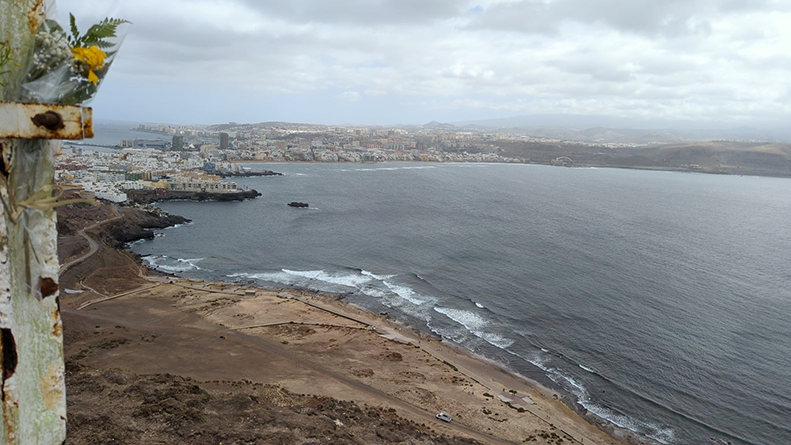
What’s the best way to discuss how a team experiment like the 4-day week is going? I’d say that you need to get together with everyone involved and spend quality time. Particularly, when it’s already been 5 months since you started playing this entirely different game… and when you’re considering making further changes!
Some other factors make a team retreat absolutely essential for resolution: With a headcount of 30 people, more than 10% of employees are fully remote, and we have no mandatory policy to ever go to the office. Plus, our two offices are 730 kms apart! All in all, it’s very easy to not see anybody in person even while you’re acing your job.
In fact, the last team retreat had been at Berlin in July last year. It was then and there that we decided to start with the 4-Day Week.
Keep reading about the 4-Day Week
So what happens when our team gets together for a week?
Some of it will be fun. Some of it will be hard work. Some of it will be sharing memories and experiences that become collective as they are picked up and discussed by others.
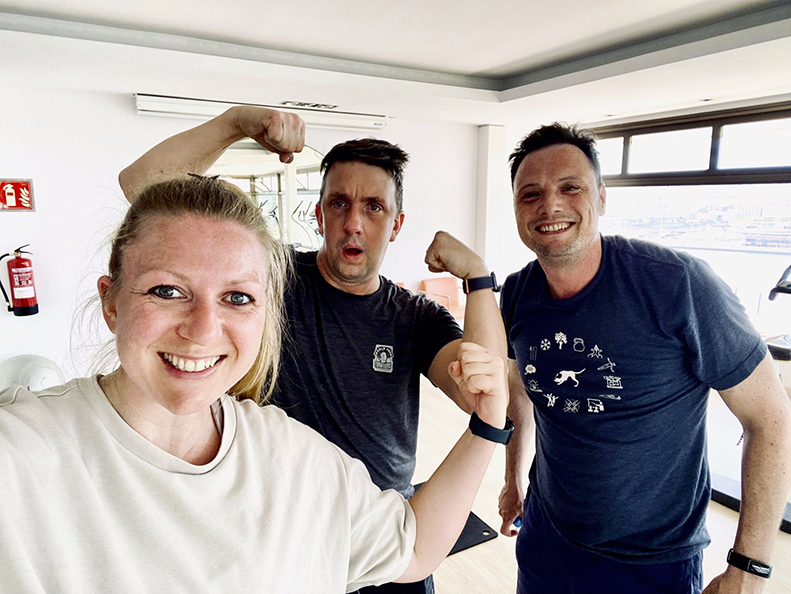
Last year, we met in Berlin. Which involved not traveling for many of us.
This year, we spent a week in May in Gran Canaria, 100 km West off the African coast. The setting was magnificent.
But it wasn’t just about the setting.
We didn’t choose Gran Canaria just because we wanted a deluxe vacation. Alright, we did look for options in all Europe where we could enjoy a bit of a warmer weather than in Germany… but we also needed everybody to travel so nobody had to go back to their family duties after the schedule. It was also important to have a 10 minute radius to everything so people could join and leave in their free-time whenever they liked. In the end, I think that worked really well. You could jump in the ocean any time and that was fantastic, but it was also very special this time that a lot of free-time was spent in bigger groups
Fredi
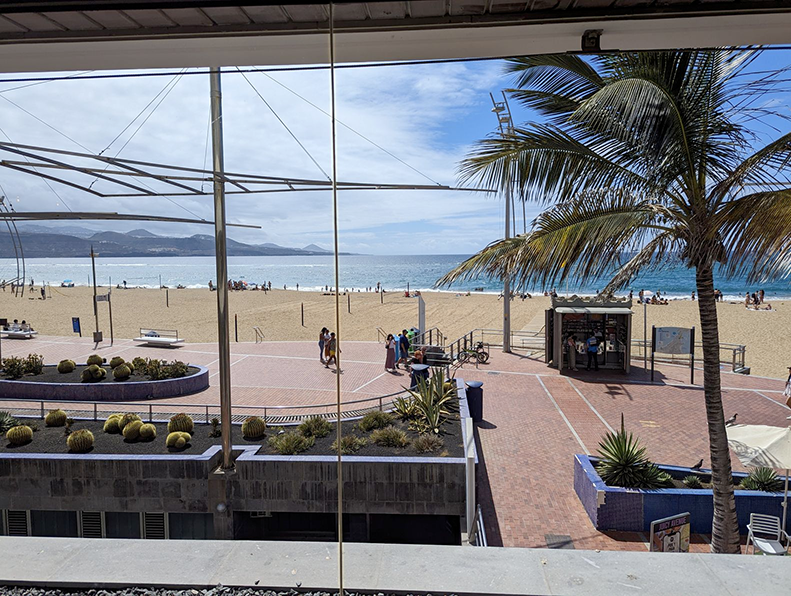
A team on an island
Germany is not an island. Everyone reading these words knows that.
It’s also nowhere near the Mid-Atlantic: the Baltic Sea (called in German the Ostsee, as if it was a huge frozen lake) doesn’t have the same currents. Which means that the average German hasn’t played with the waves like I did as a kid.
I realized how unique that experience was for two of my colleagues when I saw them playing with the excitement of small children. I saw an angle of them that is completely hidden in our everyday office relationship.
And that’s how teams come together, particularly when you don’t have the opportunity to see everybody else every day.
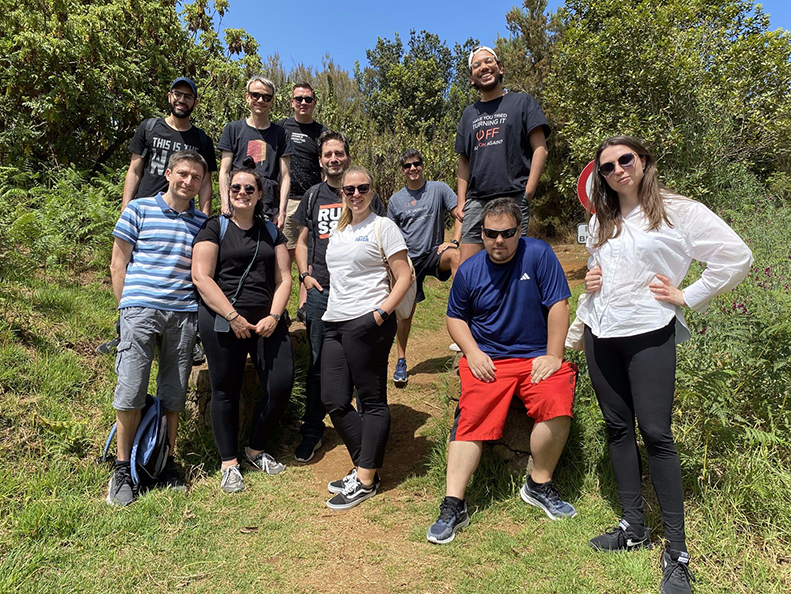
Our definition of team

The resolution team is a diverse group of down to earth people that makes it soo easy to fit right in. Being given the opportunity to meet everyone in such a short and intensive period makes for a great start and I wouldn’t want to have missed out on it.
Ziska Hammerl
The team = every employee
But who was the team anyways?
Well, for the very first time since before the pandemic, the team meant literally EVERYBODY at resolution. Our accountant Christiane was there –she couldn’t join in last year because she caught COVID last minute. Or Irina, our UI designer, who was not allowed to travel to Germany back then because of her status.
Plus new hires
We even had 2 new colleagues join us who had only worked for 4 days before the trip: Ziska, our first female dev, and Amr, our second Egyptian team mate. By the way, Egyptians have a very elegant accent when speaking English!
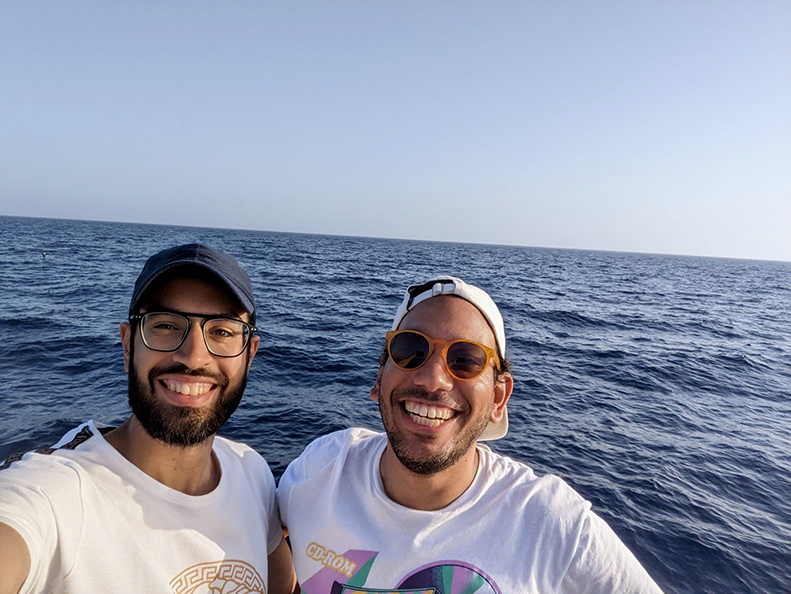
Being able to join a team even like this one so early in my journey with resolution (4th DAY!) has been an incredible opportunity. It allowed me to connect with my “future” colleagues on a deeper level, form bonds and create a strong foundation and mutual support in the future which “usually” would take a long time or exceptional circumstances to foster. Thank you ❤️
Amr Hussien
Plus new partners
Plus, we also invited two entrepreneurs to join, who were about to close very special partnerships with resolution. Let me draw two quick portraits.
Isaiah from Werc
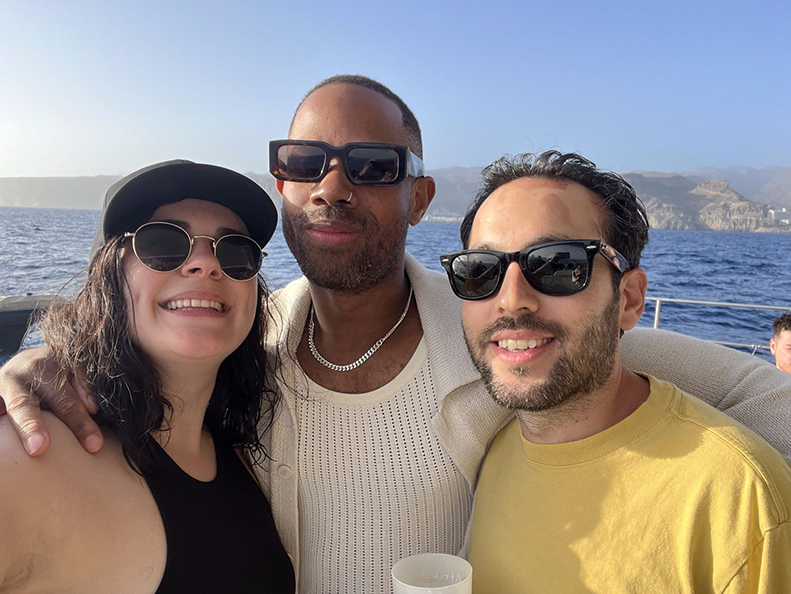
Isaiah worked at re:solution between 2018 and 2021. He’s one of the brightest marketers with whom I’ve had the pleasure to work, and is now an entrepreneur with his co-founder Tahira. Their mission at WERC is making producer’s lives less crazy. In their own words:
We’re forging ahead with a mission to simplify the quest for diverse crews and streamline content creation across the globe. The spark ignited in 2015 when Tahira, knee-deep in freelancing, was wrangling with the relentless pursuit of finding crew members. She nudged Isaiah with a question that would change our lives: there’s gotta be an easier f***ing way?
Fast forward six years, and Tahira had a realization: technology had evolved, adoption skyrocketed, and yet she was still drowning in phone calls and buried under emails. We knew it was about damn time to get cracking.
Resolution is investing in Werc to help them make their mission possible. As usual, our investments are not simply a lump sum of money: we share resources and expertise, becoming real partners along the way.
Philipp from ExtraFresh
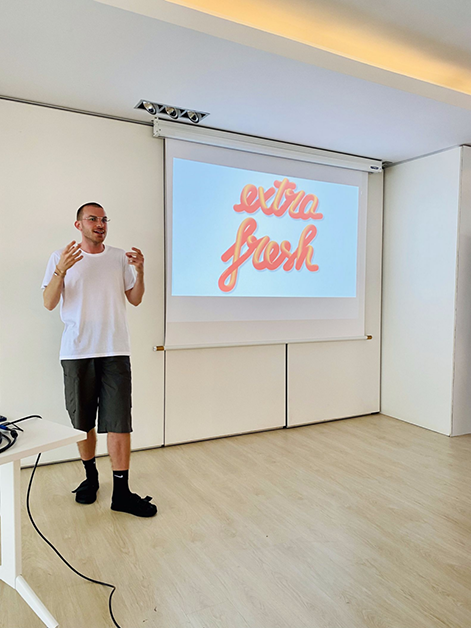
Philipp comes from a small German village and is very close to his family, but he’s far from an introvert. Vibrant and inspiring, he’s partnered up with his friend Nora, who runs Extra Fresh, an agency specialized in hiring extras for media productions. Since they don’t have a lot of technological background, we’re in turn partnering with them to make sure that the product they’re working on is a success.
These two new partnerships are quite unusual for us: they have no relationship whatsoever to the Atlassian world, and they belong to the media industry.
If you had told me a year ago that we’d be entering the film-making world, I would have called you crazy!
That’s Chris speaking. But it could have been any of us nerds.
What’s on the Agenda: the 4-Day Week
The 4-Day Week was not the only item on the agenda.
But it was both the first topic that we discussed, and the background against which every session was held.
We had been working on the new work flow for 5 months already. So it was time to ask the big question:
Is this working for us? Do we stick to the 4-Day Week? Or is there enough evidence that we should cancel it?
The easy part: everyone is happy
We started the session with the recognition that everyone is pretty hyped with our new week – which was not unexpected, but still nice to hear for all of us, since we want to continue!
The tough part: a multi-crisis world
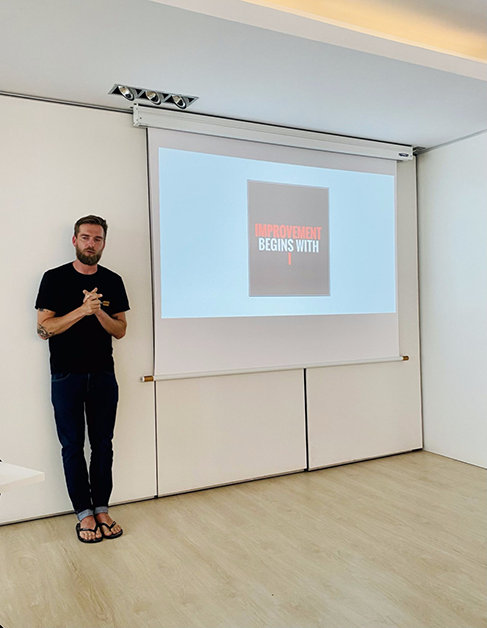
That having been said, Björn and Chris moved to a general but vital acknowledgment: the world is in a pickle. And so are we – even if we don’t feel it yet.
Our productivity metrics have remained healthy throughout the first 5 months of the experiment. But around us, the world is slowing down with multiple crisis. Some of them will end, some of them will stay (yes, I’m thinking of climate change).
The current success of the company is based on the good work that we put in four, five, six years ago. But in order to be successful in 5 years from now, we need to put in some great work now. And I have the impression that we’re not shipping value for customers as fast as we could.
Chris made a big effort to shake us, to make us feel responsible for the future of the company.
I’m not saying that these problems have been caused by the 4-day week. But they have probably become more visible and urgent because of it. We cannot accept that essential milestones like the release of a new app keep being postponed. If you see something like that happening, I need you to step up, claim ownership, and solve it.
We designed the 4-day-week experiment to challenge us. To be the best version of ourselves. It’s way too soon to settle back and rebuild our comfort zones.
But just as a wound heals naturally, comfort zones build up naturally again, and you need to build the habit of stepping outside of it – as a team. That’s where learning happens.
Building cohesion: getting to know everyone
Another important aspect of the team building event was getting to know each other.
Yes, it sounds fluffy. Even shallow. But it’s huge.
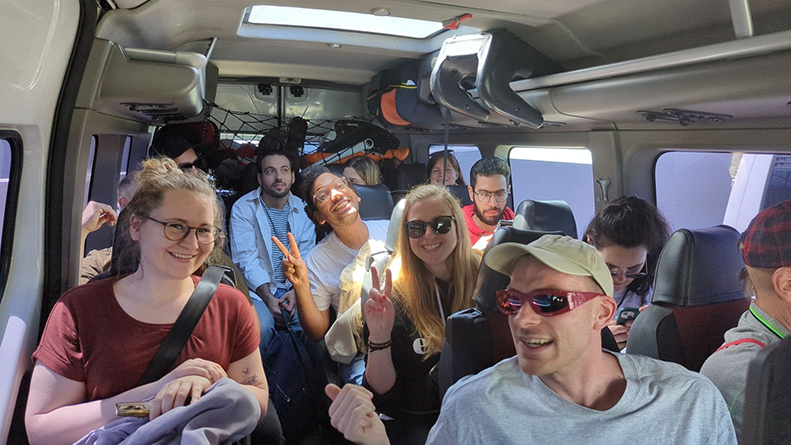
As I said at the beginning, we’re a very small but also very distributed company. We rely on Slack and Zoom for most of our interactions, but we are missing the social chitchat of the everyday coffee break.
Spending a weeks time with the team is invaluable. There’s just no better way to create trust with the people you work with than… simply spending time together, and learning to be with the others.
For “fully” emotional communication, one person needs to allow his state of mind to be influenced by that of the other.
Daniel Siegel
No tribe culture
The mingling and networking happened per se quite naturally, as teams were not keeping to themselves. We also didn’t see folks automatically regroup per language, although I did enjoy having two or three chats with Andrés and Gerard in Spanish!
Questions for mutual exploration
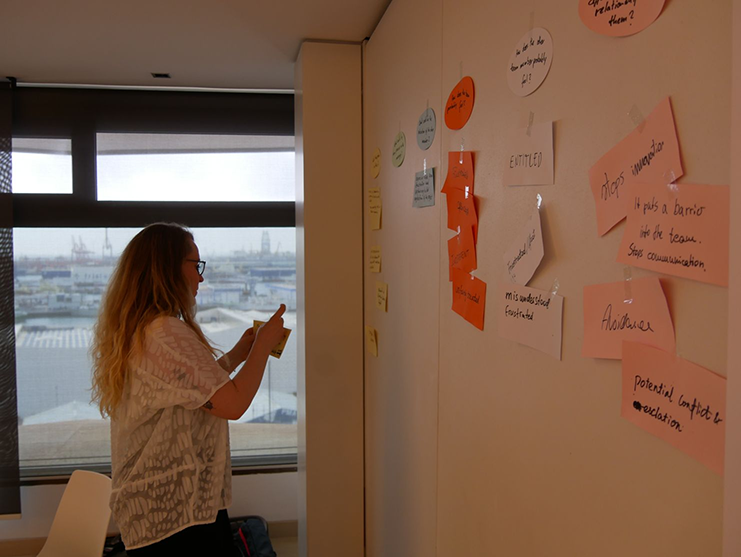
There’s always people you work more closely with, and others you may not have collaborated with or even talked to. There are untapped relationships for all of us.
To encourage our mutual exploration, Fabia held a communication workshop.
One of the exercises prompted us with a number of questions that we had to try to answer about a colleague with whom we had never worked before. Call it colleague discovery.

Understanding cultural differences
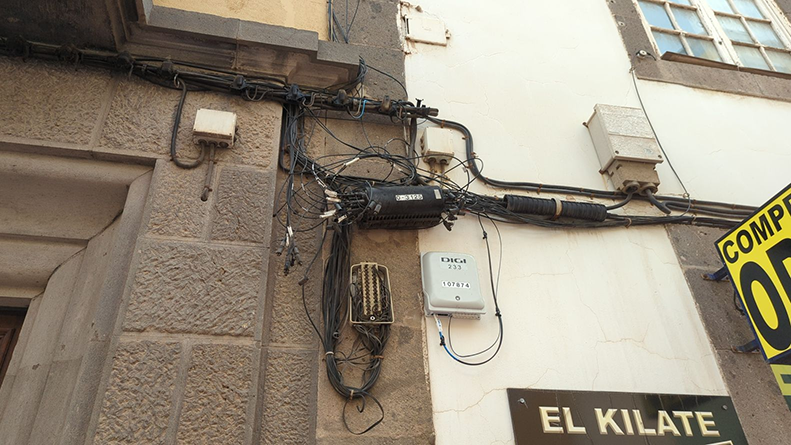
Understanding others is at the heart of communication. And quite often, knowing more about a colleague’s culture can go a long way in preventing misunderstandings.
We were able to find three great examples within the team:
- Like many Mediterranean cultures including Spanish,Brazilians often say no with a click of the tongue that tends to be double (tsk tsk). But to some of our German colleagues, this layer of communication was often getting lost on virtual meetings.
- In China and Mexico, it is impolite to say no. When doing business, you need to be able to read between the lines and understand when a plan is a “fake polite plan”.
- Spaniards are famous for interrupting others. It’s just how we have conversations, and it’s a relatively well known fact. However, it’s not as well known that we also expect to be interrupted. If nobody interrupts, we may just keep talking until they do, repeating the same concept over and over and thinking to ourselves “they’re obviously not getting my point, let me explain again from a different angle”.

My affair with my developer
Since I started working as part time product owner of our Out of Office Assistant for Jira Cloud, Michael has become one of the people I collaborate more closely with. And while we already got along really well, we didn’t know much about each other at a personal level. I certainly did not know that he knows a lot about philosophy (as a philosopher, that matters to me!).
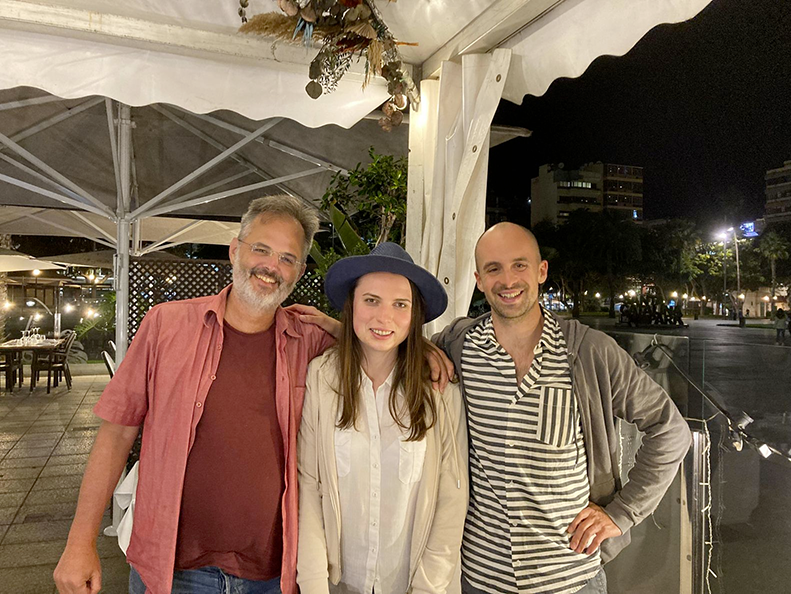
I also found out that he’s a bit of a bookworm like me; and that before coming back to the tech space, he ran a publishing house specialized in the works of Rudolf Steiner – the founder of Waldorf education.
So, don’t tell our wives, but we’re eloping!
Making Changes to Shake it off

The week was not plain fun and talk. We also made deep changes to our workflows.
After several surveys and many conversations, Fabia and our CEOs had realized that our teams were still closed silos.
We need to better understand what everybody else is doing
In order to prevent this, it was suggested to all of us that every team adapted the same planning cycle:
- 3 week sprint
- sprints are started and closed on the same calendar day for all teams

With this new setup, all three teams plan, execute, and review at the same time. This makes coordination much more natural:
- Predicting when another team will finish their current sprint and may take up new work is obvious
- Planning meetings happen in the same day, and are documented and shared two days later with everyone (see the next section)
- Reviewing upcoming releases and their impact for business teams is more natural
- The similar structure also allows to learn from other teams

3 week sprints are a great fit for the 4-Day Week
When work weeks are limited to four days, two-week sprints become compressed to just eight days. Sprint planning and retrospectives can then feel a particularly taxing bureaucracy that sometimes eats up to 2 days!
By extending the sprint and additional week, working days in each sprint go from 6 to 10.
A New Town Hall Meeting (We call it AD&D)
When I joined resolution, there were a couple of biweekly meetings. One of them for management announcements and another for demos. At some point, they were consolidated into a single meeting under the acronym AD&D (Announcements, Discussions, and Demos).
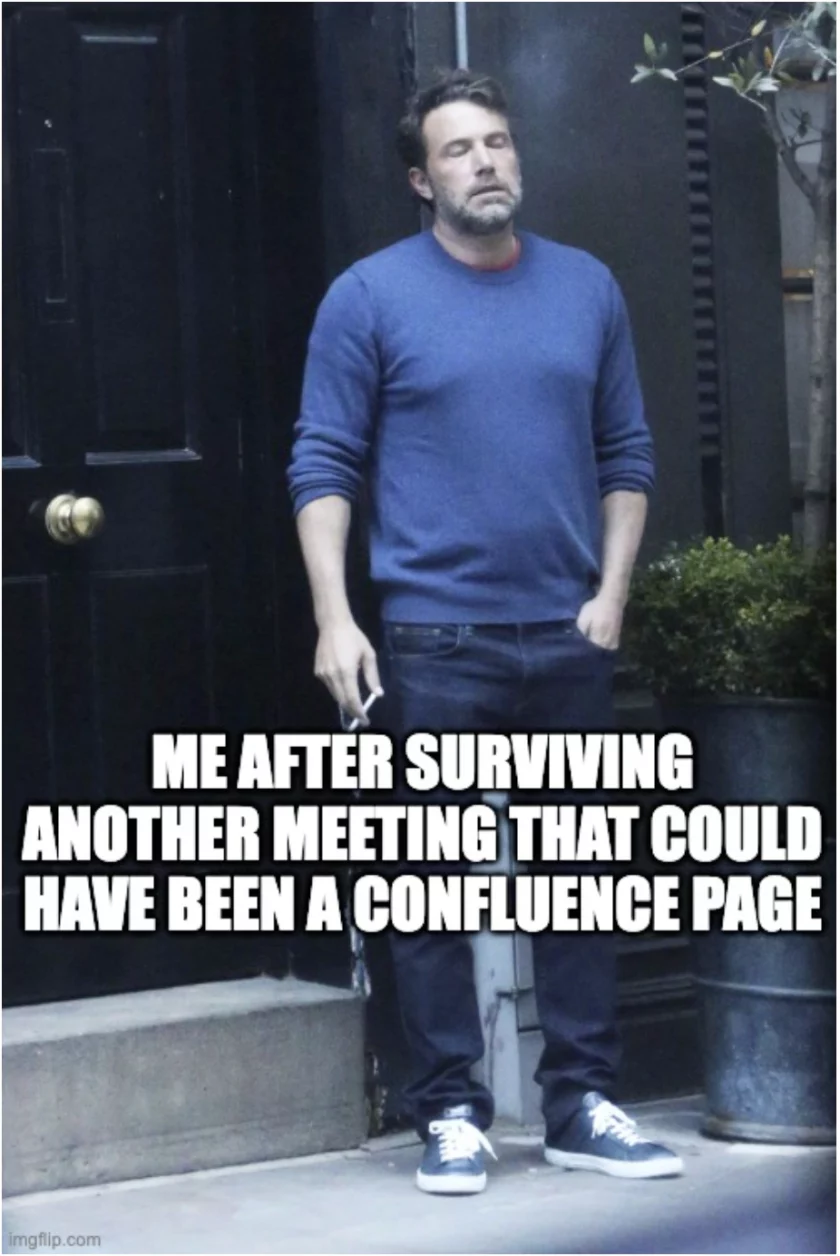
For years, the AD&D meeting had been an after thought. We didn’t prepare for it and it was often canceled. At the same time, teams were working in parallel and missing a space that they could use to keep in sync.
That’s the new AD&D format, which also happens only once per planning cycle. Technically the frequency is lower, but we never cancel it.
However, our new focus on effective meetings has come with some best practices that we must adhere to:
- Demos are well prepared in advance.
- We give kudos when they’re due. Not everything is about productivity!
- Every team must give an update that includes only information that is worth the time from the entire company.
All in all, we must make sure that we don’t run a 45 meeting with 30 attendees that could have been a Confluence page.
Celebrating our Uncharted Path to Change

If there’s something I’ve learned after almost a year of discussions and many months of writing, it’s that the 4 Day Week is a permanent work in progress. We commit to not staying still. We commit to re-opening a deep wound in our habits and breaking out of the comfort zone for as long as it takes. We commit to brutal honesty. We commit to the team.
There’s no paved road ahead of us. It’s way more change than I’ve ever been willing to accept at any other job I’ve had in the past. And there’s also a bit of centralized micromanagement – until we figure out every piece of the puzzle.
But it’s totally worth it, and the overall smell of the experiment is that of celebration. We’ve achieved so much by just being so far into the journey. We’ll achieve a lot more by keeping tight as a team.
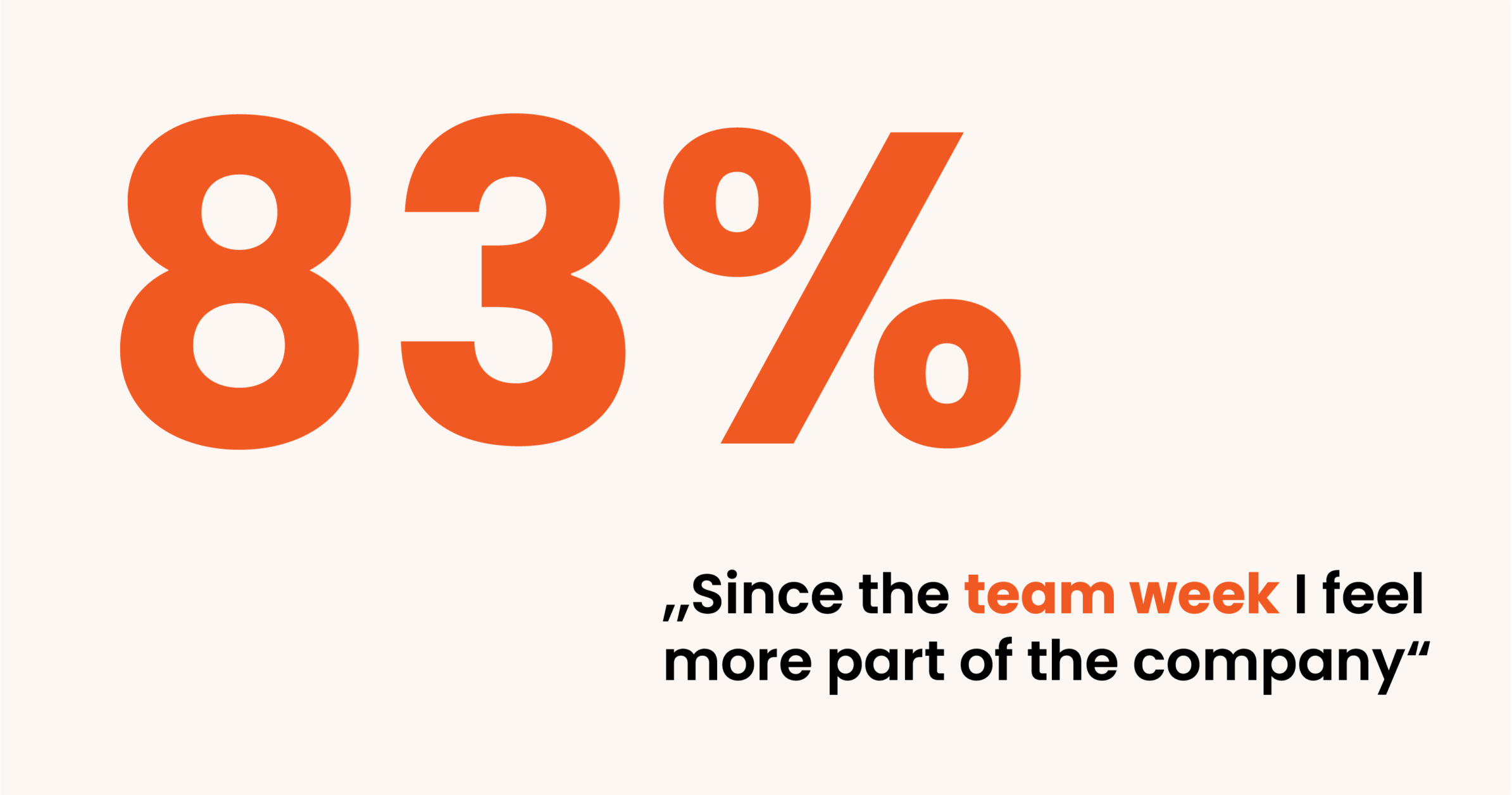
We’re way more organized and structured than a year ago. And at the same time, each of us has an incredible amount of individual freedom.
Subscribe to our newsletter to get an email with our next article in the 4-Day-Week series!
Next, we’ll possibly talk about how we have adopted Jira Product Discovery across the company and is now used among other things to document, track, prioritize, and align every marketing activity.
